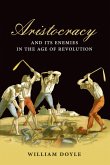In "The Enemies of Books," William Blades examines the myriad threats that literature has faced throughout history, from physical decay and neglect to the insidious influences of censorship and obscurantism. Written in a reflective style that echoes the contemplative prose of 19th-century essays, Blades draws on an array of literary references and historical anecdotes to elucidate the struggles of books as both cultural artifacts and vessels of knowledge. The work is situated within the larger context of the Victorian era's growing concern for preserving intellectual heritage against a backdrop of social upheaval and technological advancement, making it an essential read for bibliophiles and scholars alike. William Blades, a notable bibliophile and bookmaker of the 19th century, possessed an enduring passion for literature that influenced his life and work. His deep concern for the preservation of books, coupled with a keen awareness of the eroding forces against them-both material and ideological-propelled him to write this seminal work. Blades's own experiences in the world of publishing and printing lend authenticity and urgency to his arguments, revealing his dedication to safeguarding the written word. Readers who cherish the written word will find "The Enemies of Books" an enlightening exploration of the fragility of literature and the critical role it plays in society. Blades's masterful blend of scholarship and heartfelt advocacy compels us to reflect on our own responsibilities as custodians of culture. This book not only informs but also inspires, making it indispensable for anyone committed to preserving the literary canon.
Dieser Download kann aus rechtlichen Gründen nur mit Rechnungsadresse in A, B, BG, CY, CZ, D, DK, EW, E, FIN, F, GR, H, IRL, I, LT, L, LR, M, NL, PL, P, R, S, SLO, SK ausgeliefert werden.









